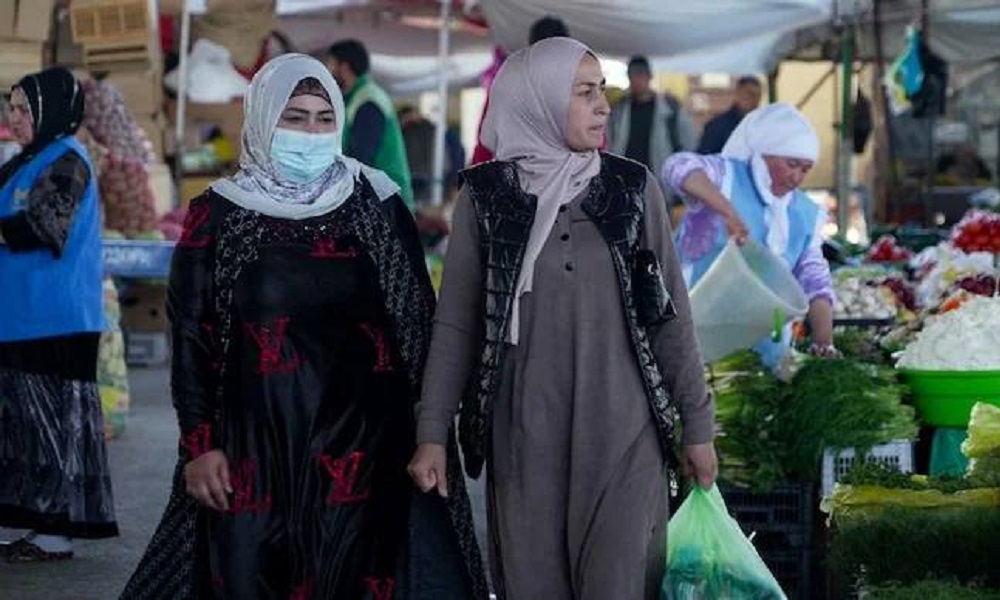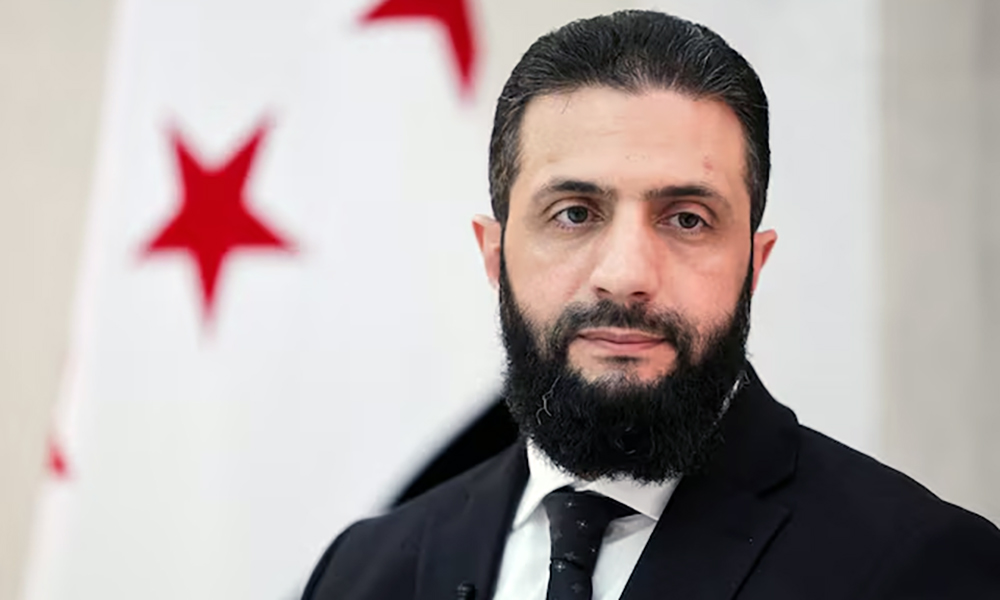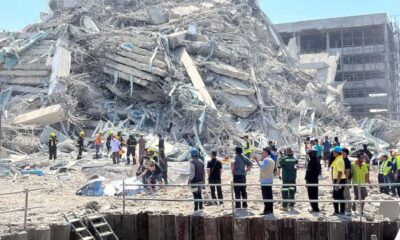Regional
CAIR condemns Tajikistan’s ‘draconian’ ban on women’s hijab

America’s largest Muslim civil rights and advocacy organization, the Council on American-Islamic Relations (CAIR), has condemned Tajikistan’s new legislation that seeks to prohibit the wearing of Islamic headscarves like the hijab.
CAIR’s Research and Advocacy Director, Corey Saylor, expressed concern over the implications of such a law, denouncing it in a statement on Friday as a severe violation of religious liberties, TRT WORLD reported.
“Banning the hijab is a violation of religious freedom and such bans on religious attire should have no place in any nation that respects the rights of its people,” stated Saylor, underscoring the organization’s unwavering commitment to defending the rights of Muslims both domestically and internationally.
“We condemn this draconian, repressive law and urge the Tajik government to reverse this decision” the statement said.
The hijab covers the hair and body and is a religious commandment of world’s fastest growing and second biggest religion, followed by many Muslim women worldwide.
As per media reports, under the newly enacted legislation, individuals wearing hijabs or other prohibited religious attire in Tajikistan could be fined up to 7,920 somonis (approximately $700). Companies permitting employees to wear banned garments face penalties of 39,500 somonis ($3,500). Government officials are subject to even higher fines ranging from 54,000 to 57,600 somonis ($4,800 to $5,100) if found violating the restrictive law.
Out of Tajikistan’s population of approximately 10 million people, according to research by the Pew Research Group, 98 percent identify as Muslim.
Regional
China launches military drills around Taiwan, calls its president a ‘parasite’

China began joint army, navy and rocket force exercises around Taiwan on Tuesday as a “stern warning” against separatism and called Taiwanese President Lai Ching-te a “parasite”, as Taiwan sent warships to respond to China’s navy approaching its coast.
The exercises around the democratically governed island, which China views as its own territory and has never renounced the use of force to bring under its control, come after Lai called Beijing a “foreign hostile force” last month, Reuters reported.
China detests Lai as a “separatist,” and in a video accompanying the Eastern Theatre Command’s announcement of the drills depicted him as cartoon bug held by a pair of chopsticks above a burning Taiwan, calling him in English a “parasite”.
“The focus is on exercises such as combat readiness patrols at sea and in the air, seizing comprehensive control, striking maritime and land targets, and imposing blockade controls on key areas and routes,” the Eastern Theatre Command said in a statement.
Taiwan’s government condemned the drills, with the presidential office saying China was “widely recognised by the international community as a troublemaker” and that the government has the confidence and ability to defend itself.
Taiwan’s government rejects Beijing’s sovereignty claims, saying only the island’s people can decide their future.
Two senior Taiwan officials told Reuters that more than 10 Chinese military ships had approached close to Taiwan’s 24 nautical mile (44 km) contiguous zone and Taiwan sent its own warships to respond.
However, Taiwan has not detected any live fire by the Chinese military, one of the officials said.
TAIWAN DISPATCHES WARSHIPS
Taiwan’s Defence Ministry said in a statement that China’s Shandong aircraft carrier group had entered the island’s response area on Monday, adding that it had dispatched military aircraft and ships and activated land-based missile systems in response.
The drills took place after U.S. Defense Secretary Pete Hegseth left the region following visits to Japan and the Philippines, where he criticised China and said Japan was “indispensable” for tackling Chinese aggression.
A senior Taiwan security official told Reuters, citing internal assessments, that Beijing needed to avoid any “perceived confrontation” with Washington prior to the U.S.-China trade talks, and thus Taiwan has become a pretext.
“Taiwan is their best excuse. That’s why they chose to launch such military drills as soon as the U.S. defence secretary left Asia,” the official said.
The de facto U.S. embassy, the American Institute in Taiwan, said the United States will continue to support the island.
“Once again, China has shown that it is not a responsible actor and has no problem putting the region’s security and prosperity at risk,” a spokesperson said in a statement.
“CLOSING IN”
China’s military released a series of propaganda videos in quick succession after the drill announcement, depicting Chinese warships and fighter jets encircling Taiwan, Taipei being aimed at from above, and military vehicles patrolling city streets.
A video of a poster accompanying the drills titled “Closing In,” and showing Chinese forces surrounding the island, was released on the Eastern Theatre Command’s Weibo.
This was followed by a video titled “Shell”, depicting president Lai as a green cartoon bug spawning parasites across the island, on the Eastern Theatre Command’s WeChat page.
“Parasite poisoning Taiwan island. Parasite hollowing Island out. Parasite courting ultimate destruction,” the animation said.
Taiwan Defence Minister Wellington Koo said such rhetoric was not conducive to peace and “shows their provocative character,” when asked about Lai’s cartoon depiction.
A third video, “Subdue Demons and Vanquish Evils”, featured Sun Wukong, the magical monkey king from the Ming Dynasty epic “Journey to the West” as he is depicted in the “Black Myth: Wukong” hit video game.
It opens with the video’s title flashing across the screen and the Chinese mythical warrior riding on clouds before cutting to footage of Chinese fighter jets.
“The joint exercise and training conducted by the Eastern Theatre of the Chinese People’s Liberation Army (PLA) in the vicinity of Taiwan Island is a resolute punishment for the Lai Ching-Te authorities’ rampant ‘independence’ provocations,” said Zhu Fenglian, a spokesperson for China’s Taiwan Affairs Office.
Taiwan’s Koo told reporters the PLA should focus first on resolving its issues with corruption instead of destroying peace and stability in the region.
China’s military has undergone a sweeping anti-corruption purge over the past few years, which saw former Chinese Defence Minister Li Shangfu ousted in October 2024.
China’s defence ministry did not immediately respond to a request for comment on Koo’s remarks.
The Taiwan security source, citing internal intelligence assessments, said China was trying to busy its military with exercises as a way of distracting and stopping its soldiers from discussing the corruption crackdown amongst themselves on base.
China’s coast guard said it was also taking part in the drills, saying it was simulating “inspection and capture, interception and detention operations against unwarranted vessels” to show its exercise of “legitimate jurisdiction” over Taiwan.
The Global Times, which is owned by the People’s Daily newspaper of the governing Chinese Communist Party, said the drill had not been given a code name to show that Chinese military forces surrounding the island “has become a normal practice,” citing Zhang Chi of National Defence University.
“Through a series of exercises held in the Taiwan Strait in recent years, the PLA has strongly enhanced its ability to prepare for war and fight battles,” the article on the paper’s Weixin social media page added.
China has staged several rounds of war games around Taiwan since then-U.S. House Speaker Nancy Pelosi visited Taipei in 2022.
Regional
Iran’s Khamenei warns of ‘strong’ response if US attacks

Following recent statements by the US President Donald Trump regarding the bombing of Iran, Ayatollah Seyed Ali Khamenei, the supreme leader of Iran, has warned that if the United States and Israel take any action against his country, they will “certainly” face a strong retaliation.
Khamenei made these remarks on Monday during his speech while leading the Eid prayer.
He said: “If any wrongdoing occurs from their side, the Americans and Israelis, they will certainly face a strong retaliation.”
He added that while it is unlikely that the US and Israel would take action from outside, if they do, “they will certainly face a strong retaliation.”
In another part of his speech, Khamenei stated: “Western countries accuse the brave nations of the region of being proxies, but in this region, there is only one proxy force, and that is the Israeli regime.”
Khamenei’s statements come after Donald Trump recently said that if Tehran does not reach an agreement with Washington over its nuclear program, he will bomb Iran.
Trump added: “If they don’t reach an agreement, bombing will take place. This bombing will be like nothing they have seen before.”
Regional
Syria’s president al-Sharaa forms new transitional government
The government will not have a prime minister, with Sharaa expected to lead the executive branch.

Syrian President Ahmed al-Sharaa announced a transitional government on Saturday, appointing 23 ministers in a broadened cabinet seen as a key milestone in the transition from decades of Assad family rule and to improving Syria’s ties with the West, Reuters reported.
Syria’s new Sunni Islamist-led authorities have been under pressure from the West and Arab countries to form a government that is more inclusive of the country’s diverse ethnic and religious communities.
That pressure increased following the killings of hundreds of Alawite civilians – the minority sect from which toppled leader Bashar al-Assad hails – in violence along Syria’s western coast this month.
The cabinet included Yarub Badr, an Alawite who was named transportation minister, while Amgad Badr, who belongs to the Druze community, will lead the agriculture ministry.
Hind Kabawat, a Christian woman and part of the previous opposition to Assad who worked for interfaith tolerance and women’s empowerment, was appointed as social affairs and labor minister.
Mohammed Yosr Bernieh was named finance minister, read the report.
It kept Murhaf Abu Qasra and Asaad al-Shibani, who were already serving as defence and foreign ministers respectively in the previous caretaker cabinet that has governed Syria since Assad was toppled in December by a lightning rebel offensive.
Sharaa also said he established for the first time a ministry for sports and another for emergencies, with the head of a rescue group known as the White Helmets, Raed al-Saleh, appointed as the minister of emergencies.
In January, Sharaa was named as interim president and pledged to form an inclusive transitional government that would build up Syria’s gutted public institutions and run the country until elections, which he said could take up to five years to hold.
The government will not have a prime minister, with Sharaa expected to lead the executive branch.
Earlier this month, Syria issued a constitutional declaration, designed to serve as the foundation for the interim period led by Sharaa. The declaration kept a central role for Islamic law and guaranteed women’s rights and freedom of expression, Reuters reported.
-

 Business5 days ago
Business5 days ago36 mining contracts inked over the past year: Mines ministry
-

 Latest News4 days ago
Latest News4 days agoDried fruit market in Herat booms ahead of Eid-al-Fitr
-

 Regional5 days ago
Regional5 days agoPowerful quake in Southeast Asia kills several, Myanmar declares state of emergency
-

 Latest News5 days ago
Latest News5 days agoUS may ask for military equipment left behind in Afghanistan: Trump
-

 International Sports5 days ago
International Sports5 days agoLucknow’s six-hitting machine Pooran justifies top order slot
-

 Latest News4 days ago
Latest News4 days agoMore than 70,000 Afghans returned home in third week of March: IOM
-

 Health4 days ago
Health4 days agoGlobal organizations warn of health crisis due to aid cuts in Afghanistan
-

 Latest News5 days ago
Latest News5 days agoNegotiations with Afghanistan are the only way forward: Pakistan’s ex-PM Khan
























